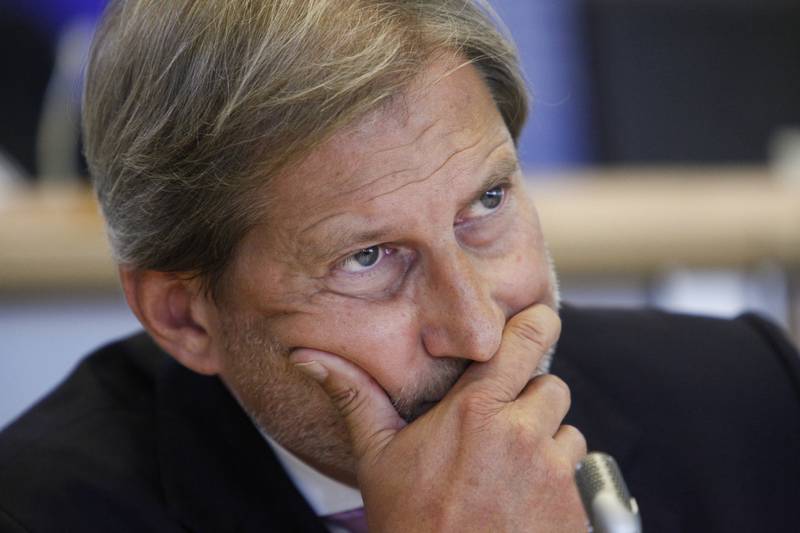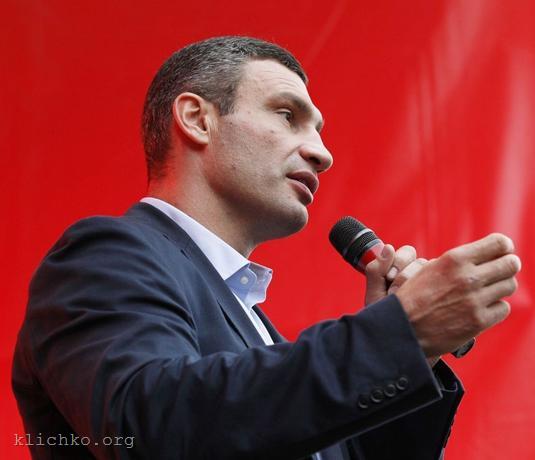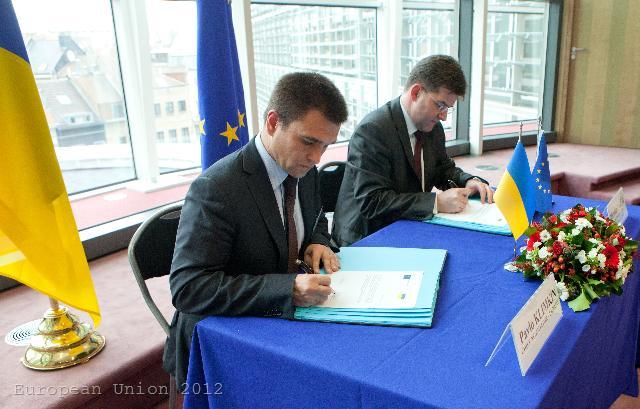The EU Warned Belarus and Ukraine about Political Prisoners
Ralitsa Kovacheva, July 25, 2012
 The European Union is experiencing problems in terms of respect for its fundamental values and principles both inside, in the member states themselves, and on its borders. The concerns about the situation in certain countries related to the values and principles of liberty, democracy, respect for human rights and fundamental freedoms, and the rule of law were the main topic of the third meeting of the Foreign Ministers of the Eastern Partnership, which was held on 23 July in Brussels. The EU was presented by High Representative for Foreign Affairs and Security Policy Catherine Ashton and Enlargement Commissioner Stefan Fule.
The European Union is experiencing problems in terms of respect for its fundamental values and principles both inside, in the member states themselves, and on its borders. The concerns about the situation in certain countries related to the values and principles of liberty, democracy, respect for human rights and fundamental freedoms, and the rule of law were the main topic of the third meeting of the Foreign Ministers of the Eastern Partnership, which was held on 23 July in Brussels. The EU was presented by High Representative for Foreign Affairs and Security Policy Catherine Ashton and Enlargement Commissioner Stefan Fule.
Baroness Ashton said that the presence of the foreign minister of Belarus, Sergei Martynov, allowed the EU to raise the issue of the lack of respect for human rights, the rule of law and independent media in Belarus. Last fall, Minsk boycotted the EU-Eastern Partnership summit in Warsaw. Foreign Minister Sergei Martynov refused to participate in the forum and had to be replaced by the Belarusian ambassador in Poland. Ultimately, the Belarus's place at the table remained empty. The foreign ministry in Minsk accused the organisers of the summit of having made it impossible for the participation of the Belarusian delegation, undertaking "unprecedented discriminatory steps with regard to Belarus," because they had refused to invite the Belarusian head of state while the appointed head of the Belarusian delegation had been restricted in attending the events of the Summit.
Martynov, allowed the EU to raise the issue of the lack of respect for human rights, the rule of law and independent media in Belarus. Last fall, Minsk boycotted the EU-Eastern Partnership summit in Warsaw. Foreign Minister Sergei Martynov refused to participate in the forum and had to be replaced by the Belarusian ambassador in Poland. Ultimately, the Belarus's place at the table remained empty. The foreign ministry in Minsk accused the organisers of the summit of having made it impossible for the participation of the Belarusian delegation, undertaking "unprecedented discriminatory steps with regard to Belarus," because they had refused to invite the Belarusian head of state while the appointed head of the Belarusian delegation had been restricted in attending the events of the Summit.
Then, Polish top diplomat Radoslaw Sikorski described this decision as another step in the "self-imposed isolation" of Belarus and EU Enlargement Commissioner Stefan Fule defined the relations between the EU and Belarus as "a thorn in the side of the Eastern Partnership."
This time, however, Belarus did attend the meeting and this enabled the EU to push for an immediate release and rehabilitation of all political prisoners, reversing the current repressive policies and conducting free and fair parliamentary elections in September. "Our message to Belarus was clear: there is no place for political prisoners at the heart of Europe. [...] For the people of Belarus we are ready to deepen cooperation once the political situation has changed," Ms Ashton said.
Asked by a journalist whether the issue of political prisoners was raised before Ukraine too, Catherine Ashton replied that she was using every opportunity to do so. She stressed that it was not about individual cases like that of Yulia Tymoshenko but about the rule of law. As you know, Ms Tymoshenko was accused of abuse of power because of the concluded agreement for gas deliveries with Russia at higher prices. She has been sentenced to 7 years in prison and is currently in jail. The EU believes that the trial against her is politically motivated with the aim to eliminate every strong competition to President Viktor Yanukovych for the parliamentary elections in October this year - an accusation Kiev, of course, denies. Ms Ashton, however, made a direct warning to the president by saying: "And if anyone does not believe or has not been seen to have been given the freedom of the rule of law being applied properly then that is a real problem for us."
EU Enlargement Commissioner Stefan Fule listed three issues on which Member States expected Ukraine to show progress: to deal with the selective use of justice, make sure that the next parliamentary elections are indeed free and fair and make concrete steps in the reform process, particularly delivering on the association agenda. The Association Agreement with Ukraine, including the first of its kind Deep and Comprehensive Trade Agreement has been finalised, the statement issued after the meeting said, without mentioning a word about signing. Indeed, the agreement was ready already in the end of last year but tensions between Brussels and Kiev have been stopping it from being signed.
Although it was not asked by journalists, one question was hanging in the air after the meeting: how does the EU feel while calling its partners to respect the fundamental values, given that at this very moment the EU itself is not a particularly good example. Hungary, Romania and Bulgaria have prompted the EU to remind its own members that the rule of law and independence of the judiciary must be respected not only until being admitted to the club but especially afterwards. However, the Eastern partners, in turn, should learn the lesson of what is happening in some of the post-communist EU members because a U-turn to the past is impossible if they really care about EU membership.
 Johannes Hahn | © European Parliament
Johannes Hahn | © European Parliament | © klichko.org
| © klichko.org | © European Union 2012
| © European Union 2012